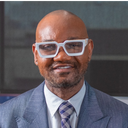Does transplanted hair affect the other follicles around it and does it affect hair growth from Rogaine?
I'm thinking of getting a hair transplant but I want to know if transplanted hair affects surrounding hair and hair growth from Rogaine
I'm thinking of getting a hair transplant but I want to know if transplanted hair affects surrounding hair and hair growth from Rogaine


What’s trending? Who’s turning heads? Which TikTok myths need busting? We’ve got you. No fluff, no gatekeeping—just real talk. Get our free, unfiltered newsletter.